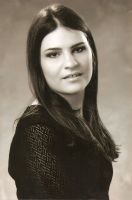Charles Lamb, Thomas Babington Macaulay, Lord Macaulay and John Bunyan
After a good education at the came school as Coleridge, Lamb became a clerk in a London office. He was timid and shy and lived a quiet life with his mother and sister, until the latter, in a fit of insanity, killed his mother. Lamb then devoted himself to looking after his unfortunate sister. He interested himself in Elizabethan drama, of which he published a book of extracts, but he is best known for his Essays, which he wrote under the pseudonym of Elia. Together with his sister, he wrote Tales from Shakespeare for children.
Unlike Lamb, Macaulay had a brilliant public career; both as administrator in India and in the British Parliament. In his later years he wrote a History of England and numerous Essays, mostly on historical and literary subjects. His style is strictly objective while Lamb`s is subjective, but most of the essays of this period may be classed as journalism, whereas in the time of Bacon the essay was used to expound a philosophical idea.
When he was about seventeen, the ordinary course of his life was interrupted by an event which gave a lasting color to his thoughts. He enlisted in the Parliamentary army, and served during the decisive campaign of 1645. All that we know of his military career is that, at the siege of Leicster, one of his comrades, who had taken his post, was killed by a shot from the town. Bunyan ever after that considered himself as having been saved from death by the special interference of Providence. It may be observed that his imagination was strongly impressed by the glimpse he had caught of the pomp of war. To the last he loved to draw his illustrations of sacred things from camps and fortresses, from guns, drums, trumpets, flags of truce, and regiments arrayed, each under its own banner…
In a few months Bunyan returned home and married. His wife had some pious relations, and brought him as her only portion pious books. And now his mind, excitable by nature, very imperfectly disciplined by education, and exposed, without any protection, to the infectious virulence of the enthusiasm which was then epidemic in England, began to be fearfully disordered. In outward things he soon became a strict Pharisee. He was constant in attendance at prayers and sermons. His favorite amusements were one after another relinquished, though not without many painful struggles. In the middle of a game at tipcat he paused, and stood staring wildly upwards with his stick in his hand. He had heard a loud voice asking him whether he would leave his sins and go to heaven, or keep his sins and go to hell; and he had seen an awful countenance frowning on him from the sky. The odious vice of bell-ringing he renounced; but he still for a time ventured to go to the church tower and look on while others pulled the ropes, but soon the thought struck him that, if he presisted in such wickedness, the steeple would fall on his head; and he fled in terror from the accussed place. To give up dancing on the village green was still harder; and some months elapsed before he had the fortitude to part with this darling sin. When this last sacrifice had been made, he was, even when judged by the maxims of that austere time, faultless.
